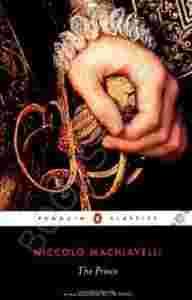|
Niccolo Machiavelli's brutally uncompromising manual
of statecraft, ''The Prince'' is translated and edited
with an introduction by Tim Parks in ''Penguin
Classics''. As a diplomat in turbulent fifteenth-century
Florence, Niccolo Machiavelli knew how quickly political
fortunes could rise and fall. ''The Prince'', his
tough-minded, pragmatic handbook on how power really
works, made his name notorious and has remained
controversial ever since. How can a leader be strong and
decisive, yet still inspire loyalty in his followers?
When is it necessary to break the rules? Is it better to
be feared than loved? Examining regimes and their rulers
the world over and throughout history, from Roman
Emperors to renaissance Popes, from Hannibal to Cesare
di Borgia, Machievalli answers all these questions in a
work of realpolitik that still has shrewd political
lessons for today. Tim Parks' acclaimed contemporary
translation renders Machiavelli's no-nonsense original
as alarming and enlightening as when it was first
written. His introduction discusses Machiavelli's life
and reputation, and explores the historical background
to the work.Niccolo Machiavelli (1[zasłonięte]469-15) was born in
Florence, and served the Florentine republic as a
secretary and second chancellor, as ambassador and
foreign policy-maker. When the Medici family returned to
power in 1512 he was suspected of conspiracy, imprisoned
and tortured and forced to retire from public life. His
most famous work, ''The Prince'', was written in an
attempt to gain favour with the Medicis and return to
politics. If you enjoyed ''The Prince'', you might like
Plato's ''Republic'', also available in ''Penguin
Classics''. ''A gripping work, and a gripping
translation''. (Nicholas Lezard, ''Guardian''). ''Tim
Parks' swift and supple new translation brings out all
its chilling modernity''. (Boyd Tonkin,
''Independent''). |
|

